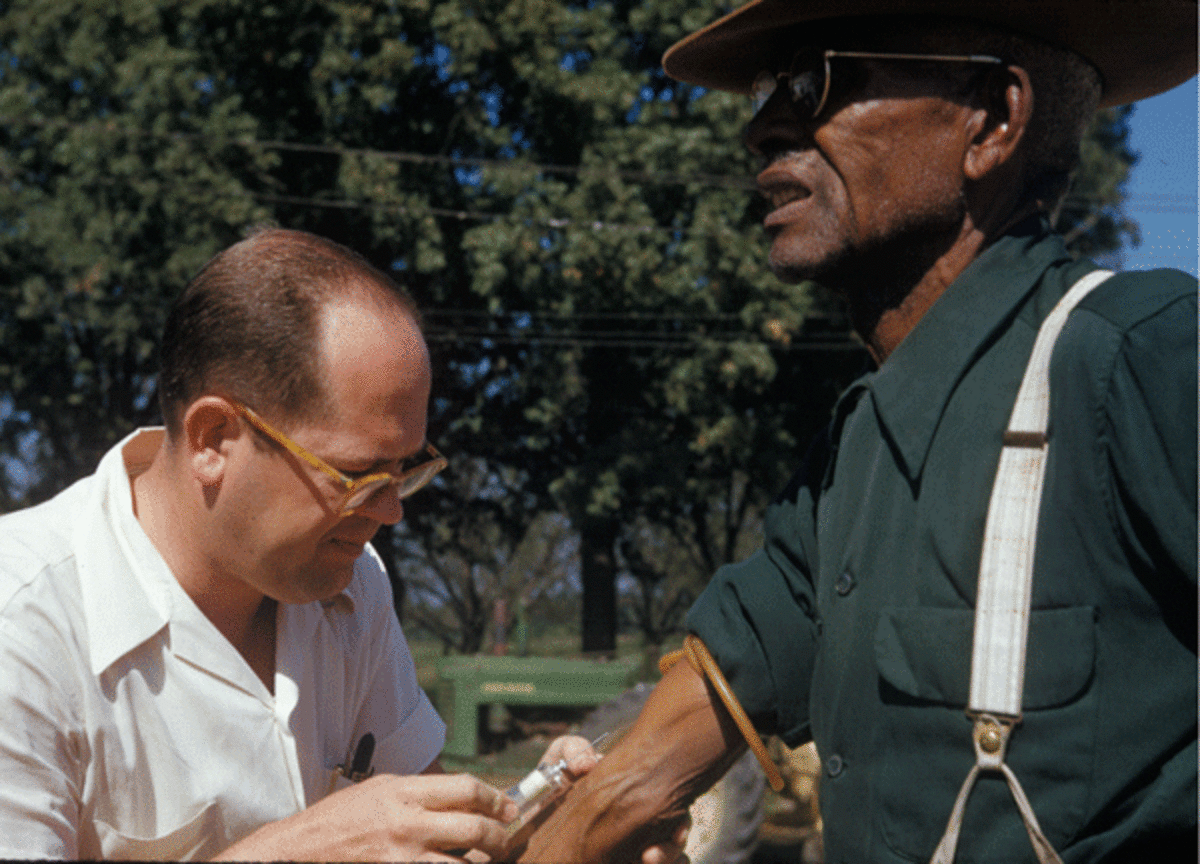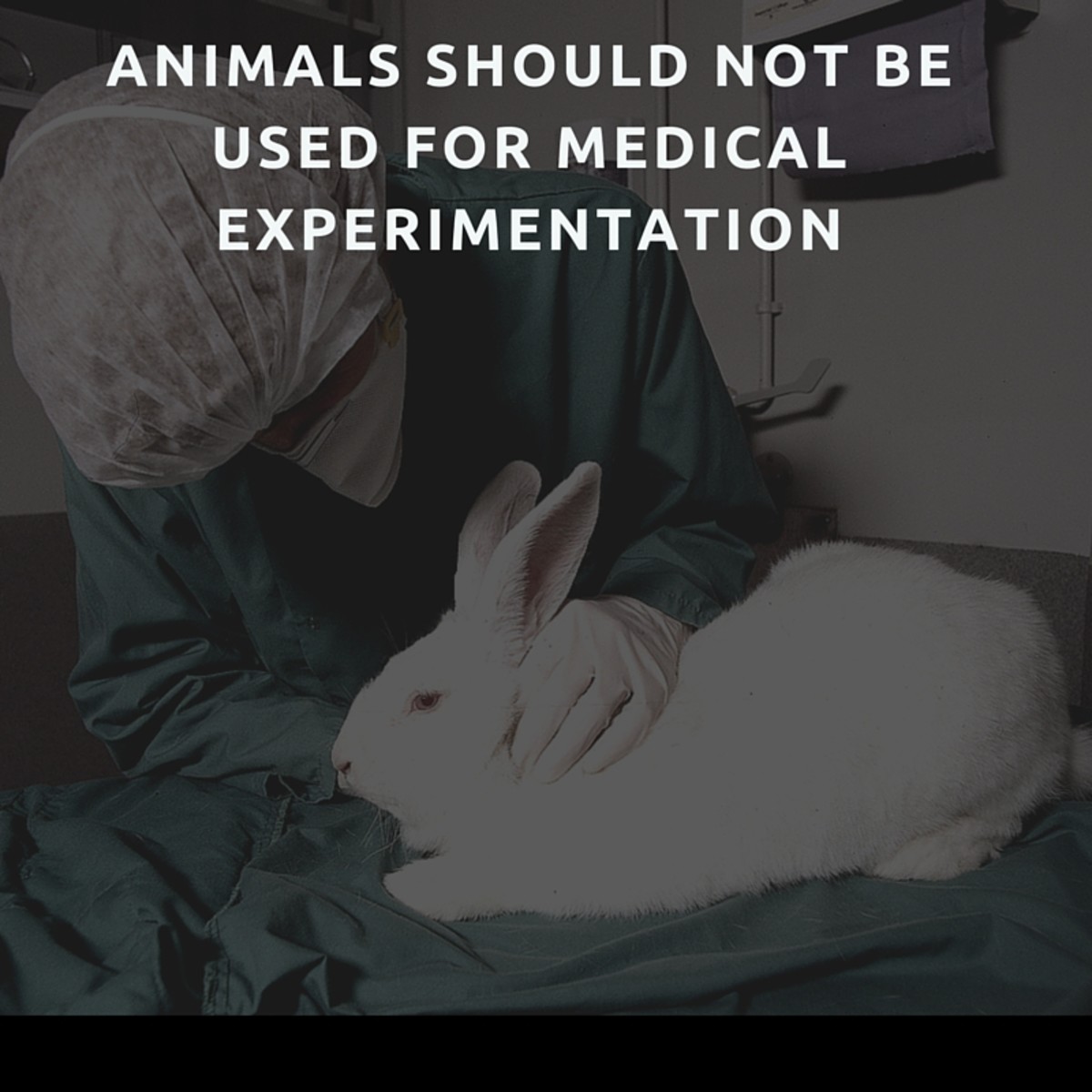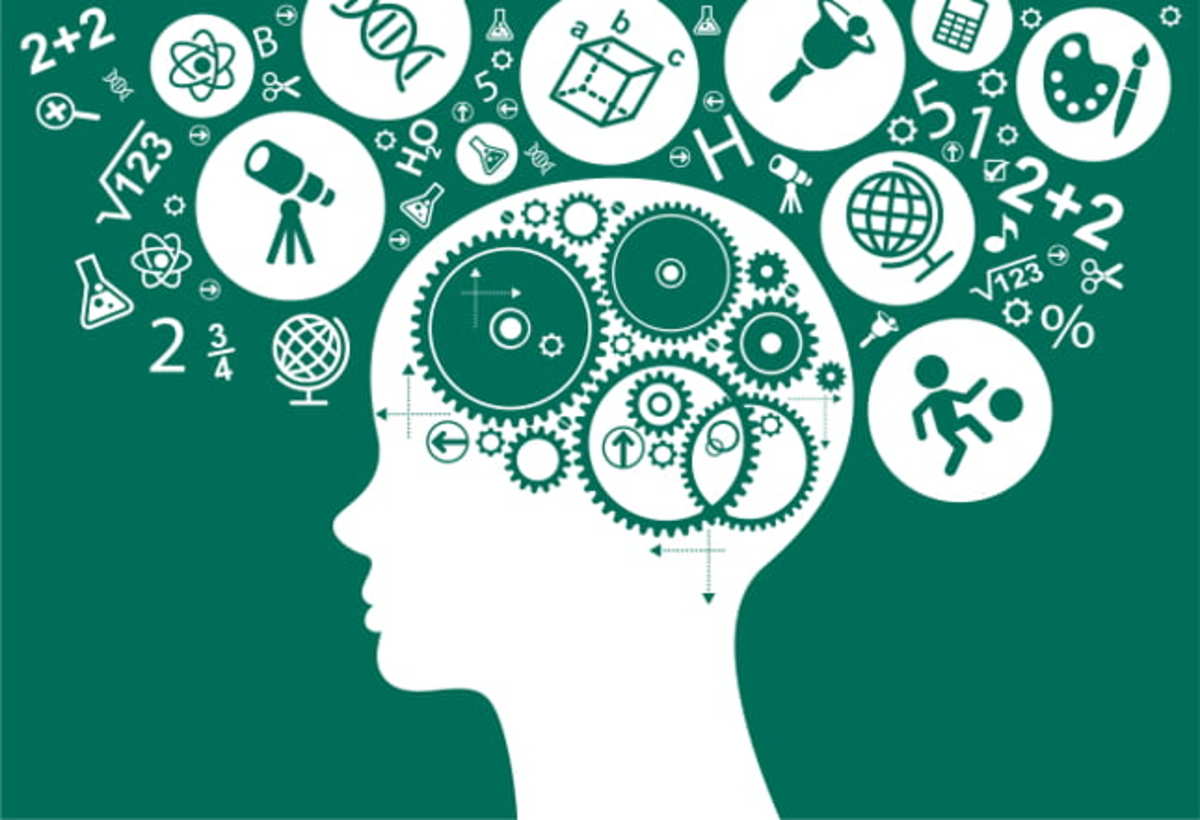Different Views On Animal Experimentation

Animal experimentation is common in our society today. Many animals are used in "biomedical research, development of new pharmaceuticals, toxicity testing, product safety and effectiveness, diagnosis of a disease, and studies of anatomy and physiology." 1 They are also used for testing of the safety of some products.
In the latter part of the twentieth century there were many experiments that were conducted with animals, and this still goes on to this day.
Two Opposing Views On Animal Experimentation
There are two opposing views in this area. Some people think that it is right to experiment on animals, while others believe that it is wrong to do so. Those people that oppose the use of animals in experiments and for research purposes would provide the following argument:
P1) It is wrong to harm living creatures
P2) Using animals in experiments harms them
C) Animal experimentation is wrong
People that are for the use of animals in research would say that this argument is unsound; that is they would claim that animal experimentation is not wrong. By using animals in medical and biochemical research many lives can be saved. Yes, some animals may be harmed during the experiments but it is for a good cause. The amount of lives that can be saved from this research is far greater than the number of animals that may be harmed. The only way to save human lives is to experiment on animals. No scientist wants to harm the lives of animals, but once again the benefit of saving many human lives outweighs the harm caused to the animals.
For example, some companies that produce makeup products for women first test it on animals. That is done to make sure that there are no side effects. And since the majority of women wear makeup it is important to know that the products are safe to use. Even household products are tested on animals for the purpose of determining their usage safety.
Animal Experimentation Can Lead To Medical Breakthroughs
Through the use of medical research, there were many new medical advances and breakthroughs that came about. This was a big change. Some of these breakthroughs that resulted from animal experimentation were "insulin for diabetes; organ, corneal, and bone marrow transplants; antibiotics for pneumonia; surgery for heart diseases; and the development of nonaddictive painkillers." 2
One of the biggest breakthroughs was the polio vaccine. It is given to every child. Until it was possible to give children the vaccine against polio many parents were afraid that their children might catch the disease. They didn't have to worry anymore when this vaccine was introduced to the world. This was possible through the experimentation of monkeys.
AIDS is a disease that is dangerous, but as of now there is no cure for it. People may die, if they get it. So, to try to find some cure for this deadly disease, AIDS treatments are tested on animals. One example is the use of a baboon.
During this experiment a baboon's bone marrow cells were transplanted into an AIDS patient. After the transplant, the baboon was killed with a lethal injection. This was done painlessly of course, so the baboon would not suffer greatly. In the end, the baboon was killed, so his tissues could be available for further medical studies in the future. This seems unfair, but the only to find a cure for AIDS is by experimenting on animals. This is essential. Some lives have to be sacrificed to save others. In this case, the potential saving of lives outweighs the number of animals that may get hurt in the process.
Even if some diseases can be prevented without using animals, medical research will still have to be performed. As long as medical research will be performed, there will be a need for animals because most likely no scientist will perform experiments on humans.
Animal Experimentation Doesn't Benefit People But Harms Animals
While all this is true, we must not forget that animals are living creatures just like us. If it is wrong to harm us, then it is certainly wrong to harm animals. Everyone has a right to live without being harmed. Well, by using animals in experiments this right is violated.
Animals suffer both physically, psychologically, and emotionally when they are used as subjects of a study. Some even end up dying. That is morally wrong. We have no right to kill or harm animals for our benefits. Animals have feelings too and by conducting tests on them we are saying that their emotions and psychological well-being do not matter to us. It is as if we don't care about them.
Experimenting on animals does not benefit people. Obviously animals are not humans. They do not have the same genetic makeup and biological system. Therefore, performing tests on animals does not prove to be efficient. Just because something might work on animals does not mean that it will work on humans.
For instance, there are certain prescription drugs and chemicals that are tested on animals to make sure they are safe to take. Because of this many Americans think that it is safe to take these prescription drugs. "Actually, many drugs that test safe for animals are later found to cause harmful side effects in humans." 2
This shows that you can't always rely on animal research to determine the safety of the medicine. Even though the test may come out safe, there could still be negative side effects when humans take them. Among these are respiratory problems, heart failure, kidney and liver failure, and even death.
Since chimpanzees have similar genetic structure to that of humans, some AIDS researchers tried to see how the HIV virus works on these animals. They infected the chimpanzees with this virus. Nothing bad happened to them. They "failed to become physically ill - a clear sign that the disease works differently on animals." 2
Unlike the chimpanzees, if humans get HIV they actually become physically ill and sometimes end up dying. Performing this test is useless. Humans do not benefit but the innocent chimpanzees are harmed. Even if these animals do not become physically ill, they are still harmed because there is a possibility that something may go wrong with the procedure.
Animal experimentation is not necessary for AIDS research. There were two developments in AIDS that did not involve animals. They were "the isolation of the AIDS virus and the discovery of the mechanism of AIDS transmission." 2
These breakthroughs were done without the use of animals but through the use of human cells and computer technology, which was used also to develop protease inhibitors. These treatments were effective. The causes of these diseases are known without animal research.
There Is No Need For Animal Experimentation
There is no need for animal experimentation in order to achieve medical progress and history has already proven this time and time again.
Various medical developments were done without animal testing. Now with technological advances in the discipline of science, such as biomedical research, there is no need to use animals for medical research and other such purposes.
Both sides hold two opposing views on animal experimentation. The debate amongst the two parties has to do with saving people and saving animals. It also involves the degree to which the benefits outweigh the harms. If using animals in research will not in any way lead to medical progress that can benefit people and save their lives then it shouldn't be done. Animals may be used in experiments only if it is absolutely necessary, and as long as they won't greatly suffer physically psychologically, and emotionally from all of this.
References and Citations...
This hub uses quotes from two books. The numbers - 1 and 2 - next to the quotes refer to these two books from which the quotes were taken.
1 Animal Welfare by Julie Catalano
2 Animal Rights by Jennifer A. Hurley
What are your views or thoughts on animal experimentation? Please share in the comments below.
© 2013 Lena Kovadlo








